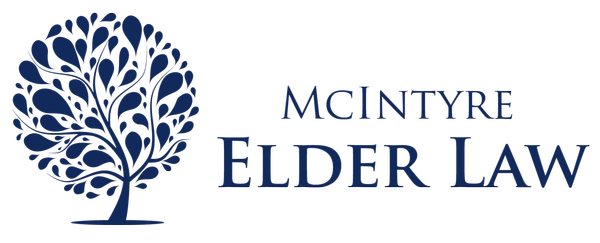Who Do You Trust?
A common theme that permeates estate planning is the need to have a clear idea of who you unconditionally trust. When you create a will, you must appoint an executor; when you create a trust, you must
appoint a trustee; and when you create a power of attorney you must appoint an attorney in fact. It is important to give thought to whom you think can ethically carry out their fiduciary duty in the manner that closely mirrors your wishes.
The Who
Trust is only one of the considerations that must be weighed in choosing a fiduciary. Another important consideration is capability, namely whether the person appointed has the skills to effectively carryout their responsibilities. This is especially poignant if you have a complex estate plan, a large estate, a large
amount of debt, or a large number of heirs.
Many of us would automatically defer to appointing our spouses. This is a reasonable approach, considering they have intimate knowledge of your wishes, and have likely intertwined their estate plan with yours. But you must consider that many of the fiduciary duties that spring from an estate plan arise from the death of the planner. Thus, the process of acting as a fiduciary can be made extremely
difficult for those who were close to the decedent.
That is not to say that you should avoid appointing a spouse or loved one. Many times, they can more than adequately fulfill the role. You simply must consider the gravity of what you are asking these individuals to do. Before appointing a fiduciary, you should speak with your loved ones to determine whether they are up for the
task.
The What
What are these fiduciary powers that
you are granting? How do they affect your estate plan?
- Executor: this individual carries out or executes the wishes set forth in your will. This process starts by filing the will at the courthouse, which begins the probate process. They
will then pay off debts of the estate, distribute property of the estate, and provide an inventory and accounting of the estate.
- Trustee: trusts can have many different functions; however, the role of the trustee remains essentially the same. It is the person who is trusted to manage the assets in the trust, to make decisions in the best
interest of the trust, and to ensure that the directions set forth in the trust instrument are carried out.
- Attorney-in-fact: this could either be your fiduciary for financial and legal purposes or for medical purposes. This individual will act as youand carry out your wishes when you are unable or incapable of doing so on your
own accord.
These individuals could all be the same or separate people. However you chose, the appointed fiduciaries play a critical role in
ensuring that your wishes come to fruition.
The How
Not only should you consider who you will appoint as your fiduciary, you need to consider how. Specifically, you should consider who will be the primary and who will be the backup.
There are many reasons why you should consider appointing a backup or secondary. It may be that the primary is unable to carry out
their duties because of death, incompetency, or physical inability. It also may be that the primary is in a compromising emotional state resulting from the death of a loved one. Either way, it is important to have someone that can step into their shoes and fulfill the role.
The Conclusion
You should take some time to consider who you want to be your fiduciary. They should be trusted and capable individuals who are up for the task. You should also consider who you would like to appoint as an alternate, they should know that there is a significant likelihood that they may be called upon
to fulfill the role as fiduciary, for whatever reason.
If you would
like to appoint a primary or secondary fiduciary, you should contact a qualified Estate Planning Attorney to assist you in drafting or updating your estate plan.


